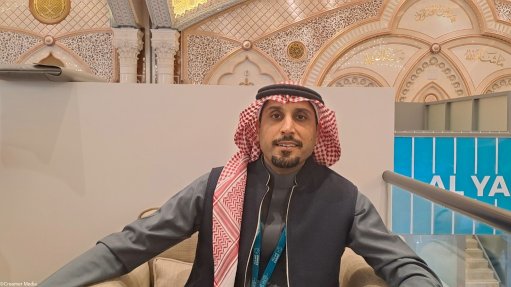Technology, education, incentives key to solving water challenge – Grant Thornton
As South Africa battles its most serious water crisis in recent history, professional services firm Grant Thornton has urged government and industry to adopt a comprehensive long-term water strategy to stave off a potential “catastrophe”.
Grant Thornton director Michiel Jonker said in a statement earlier this month that, while short-term solutions, such as fixing broken pipes and engendering responsible water consumption practices, were imperative, they would, in themselves, not resolve the crisis in the long term.
He argued instead in favour of investing in technology and intelligence, prioritising family planning, incentivising the public and private sectors, embracing complex thinking and introducing stability to the education system.
According to Jonker, several technologies beyond seawater desalination were currently available, while intelligence, such as data analytics, should also be introduced to enhance water supply.
“Experiments are being conducted with algae farms that are capable of producing clean water, oil and even livestock feed. In farming, intelligent, context-aware sensors in crop fields can be used to provide farmers with intelligence about when certain areas need water, instead of irrigating the entire farm.
“To survive and sustain the world population, we don’t have a choice but to engage with technology to intelligently reduce water use and create more freshwater. Although freshwater is finite, technology can enable us to create abundance in the future,” he noted.
Jonker added that rapid population growth, combined with urbanisation, increased the demand for freshwater and other natural resources.
According to a 2012 World Wide Fund for Nature report, the global population used 50% more resources than earth could provide.
“Demographers are adamant that family planning is an effective way to slow down population growth and the environmental pressures associated with it, such as water scarcity and food insecurity. Family planning is crucial, especially in the developing world. Earth cannot sustain between 7-billion and 11-billion people,” he remarked.
Additionally, he advocated for the incentivisation of business and government to focus not only on short-term profits and political power respectively, but also on sustainable endeavours for the future.
“Society is simply unwilling to reward political and business decision-makers for sound practices that keep the long-term future in mind. We need to force ourselves to act with the long term in mind.
“Corporate governance principles should enforce reward systems that compensate corporates and government institutions for the achievement of long-term sustainable strategies – of course, in balance with short-term objectives,” said Jonker.
It was also important, he added, to investigate complex systems thinking concepts within society. Complex systems comprised numerous components or subsystems interacting in a local manner with one another but without considering the impact of their actions on the rest of the system or the other systems they are interacting with.
Water availability, consumption, population size, farming methods and infrastructure maintenance were examples of elements contained within the water complex system.
“It is, therefore, also important to involve stakeholders from the array of different disciplines in an attempt to [resolve] the problem, as systemic problems span multiple systems,” Jonker said.
Moreover, Grant Thornton pointed to education as a lever through which responsible water use practices could be encouraged.
“In addition to current initiatives by the Department of Water and Sanitation, the education system must include subjects on concepts such as foresight development, where children are taught to think long-term in a sustainable way,” he commented.
Article Enquiry
Email Article
Save Article
Feedback
To advertise email advertising@creamermedia.co.za or click here
Press Office
Announcements
What's On
Subscribe to improve your user experience...
Option 1 (equivalent of R125 a month):
Receive a weekly copy of Creamer Media's Engineering News & Mining Weekly magazine
(print copy for those in South Africa and e-magazine for those outside of South Africa)
Receive daily email newsletters
Access to full search results
Access archive of magazine back copies
Access to Projects in Progress
Access to ONE Research Report of your choice in PDF format
Option 2 (equivalent of R375 a month):
All benefits from Option 1
PLUS
Access to Creamer Media's Research Channel Africa for ALL Research Reports, in PDF format, on various industrial and mining sectors
including Electricity; Water; Energy Transition; Hydrogen; Roads, Rail and Ports; Coal; Gold; Platinum; Battery Metals; etc.
Already a subscriber?
Forgotten your password?
Receive weekly copy of Creamer Media's Engineering News & Mining Weekly magazine (print copy for those in South Africa and e-magazine for those outside of South Africa)
➕
Recieve daily email newsletters
➕
Access to full search results
➕
Access archive of magazine back copies
➕
Access to Projects in Progress
➕
Access to ONE Research Report of your choice in PDF format
RESEARCH CHANNEL AFRICA
R4500 (equivalent of R375 a month)
SUBSCRIBEAll benefits from Option 1
➕
Access to Creamer Media's Research Channel Africa for ALL Research Reports on various industrial and mining sectors, in PDF format, including on:
Electricity
➕
Water
➕
Energy Transition
➕
Hydrogen
➕
Roads, Rail and Ports
➕
Coal
➕
Gold
➕
Platinum
➕
Battery Metals
➕
etc.
Receive all benefits from Option 1 or Option 2 delivered to numerous people at your company
➕
Multiple User names and Passwords for simultaneous log-ins
➕
Intranet integration access to all in your organisation


















